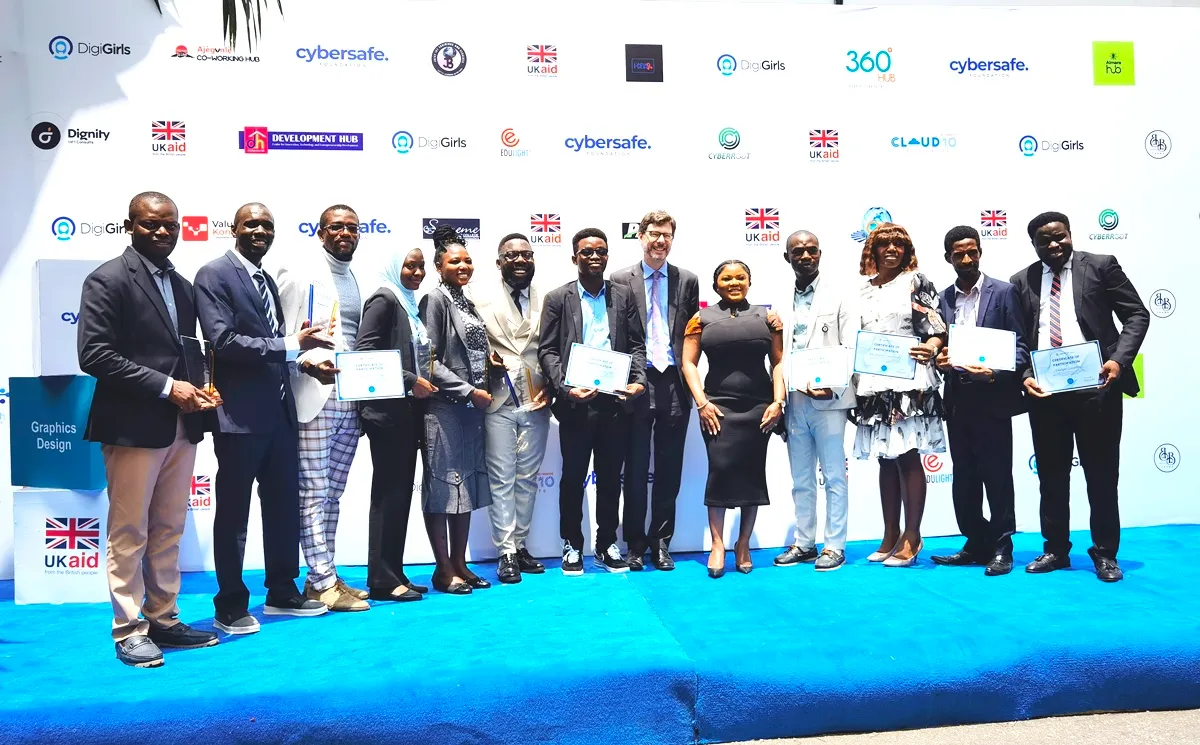Over the course of three cycles, the DigiGirls programme funded by the UK government has enabled CyberSafe Foundation to equip over 65,000 women and girls in Nigeria with marketable digital skills.
As a recent USAID report shows, 90% of jobs globally will have a digital component in the near future. Without digital skills, women are automatically disadvantaged and lack the confidence to participate in the digital workforce or the digital economy at large. The UK government’s investment in women in Nigeria has been characterised as a means to accelerate progress.
The UK plans
The British government’s resolve to bridge the digital divide was reaffirmed by Jonny Baxter, deputy high commissioner in Nigeria, during the International Women’s Day (IWD) Digihubs Awards ceremony in Lagos on March 8, 2024.
He made the claim that the Nigerian government has been an instrumental figure in helping the Nigerian people and themselves to eliminate the gender gap in technology.
That is, according to Baxter, because evidence shows that economic power increases when people are included.
Read also: UK-Nigeria tech hub accepts accelerator applications
Because these factors worsen preexisting inequalities and obstacles to receiving assistance, women and girls bear the brunt of the consequences of climate change, natural catastrophes, and conflict. Despite this, women are vital first responders in times of crisis and, when given a chance, can make important contributions to decision-making.
He made the observation that peace agreements involving civil society organisations, such as women’s groups, are 64% less likely to fail and that many countries around the world benefit from reduced conflict. When women and girls experience multiple forms of discrimination—whether it be based on their age, religion, disability, sexual orientation, race, or any other distinguishing feature—gender inequality becomes even more entrenched.
As he reflected on the Digital Access Programme in Nigeria, Mr Baxter reaffirmed the United Kingdom’s position as a world leader in science and technology, promising to collaborate with other nations to address critical issues in areas such as digital literacy.
According to him, the British government has faith in Nigeria’s digital sector and its potential for future growth. Nigeria requires a supportive regulatory climate, a pool of qualified talent, investment and partnership opportunities, and expanded availability of affordable, fast, high-quality internet in order to sustain this growth.
The in-country digital strategy, he said, is to enhance infrastructure, strengthen cyber resilience, lower barriers to digital innovation, drive the upskilling of a digital workforce, and improve regulatory and policy frameworks through collaboration between the public and private sectors.
Along with the private sector, state and federal governments, and policymakers, they collaborate through the Digital Access Programme to eliminate institutional obstacles to expanding connectivity.
The United Kingdom unveiled a 10-year women and girls’ strategy last year on International Women’s Day, demonstrating its dedication to combating gender inequality worldwide; DigiGirls is one such programme.
Over the course of the DigiGirls program’s first two iterations, 6,800 female participants gained new skills and knowledge. It may seem like a lot, but in reality, only 6.3% of those who were offered the chance to get free training actually applied.
They wanted to see if it would have a bigger effect if they tried to upskill women and girls through local tech hubs. In addition to bolstering the hubs, this would create a physical location free of disruptions where girls and women could study.
Cybersafe has successfully trained 59,900 women and girls during this project’s current phase, proving that the experiment was worthwhile. A collaboration with 60 hubs spread across 22 states in Nigeria and the help of 200 volunteer DigiGirls, also known as DigiChampions, made this possible.
One hub director speaks
Education, according to Mrs Confidence Staveley, founder and executive director of CyberSafe Foundation, is the key to unlocking innovation and attracting more women to STEM fields.
She made the astute observation that women’s inclusion will not occur by accident but rather requires deliberate, personalised, and focused investment in order to expedite the much-needed progress.
To invest in women is to invest in more than just programmes like DigiGirls; it’s to mainstream solutions through policy, include them in school curricula, and combat gender bias and discrimination in hiring by making them illegal. She brought up the need of men being educated about the challenges and rallying behind our fight against exclusion.
















